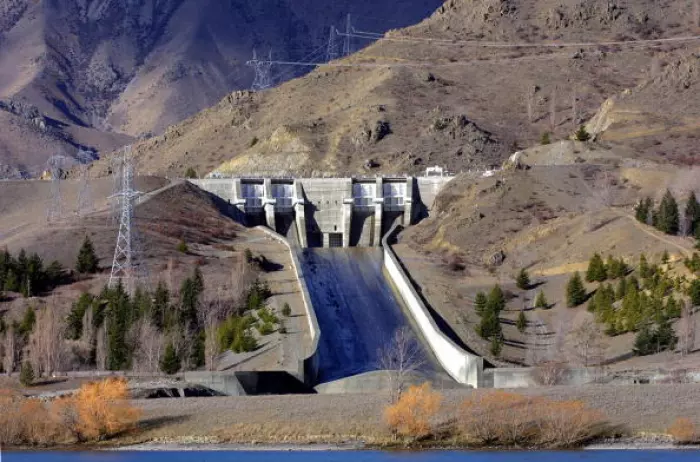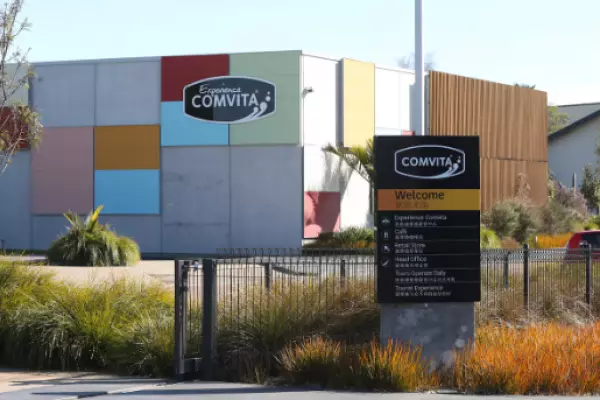The Commerce Commission finding that competition is not working well for consumers in the retail grocery sector sounds all too similar to the problems that beset the electricity sector.
The commission found supermarkets are dominated by the main operators with a fringe of other small competing operators and little prospect that new or expanding rivals will be able to achieve the scale required to compete effectively.
Its report is replete with examples of abusive market conduct aimed at stopping competition. Grocery prices and the profits of Foodstuffs and Woolworths are much higher than expected in a competitive market.
New Zealand’s specialist electricity regulator, the Electricity Authority, is at the early stages of a similar review into the wholesale electricity generation market but the findings are disturbingly similar.
Prices have been too high for too long
The Electricity Authority found “evidence to suggest that prices may not have been determined in a competitive environment”.
The initial investigation findings suggest wholesale prices – that’s the price for electricity generation – could be about $2.4 billion higher than they should be each year.
Every study that has tried to work out excess returns over the last decade has come up with figures in the billions. By comparison, the Commerce Commission found the two big supermarket chains are extracting $430m in excess returns.
Electric Kiwi reckons that money would be better in the pockets of Kiwi families and businesses.
Meridian’s Tiwai ‘jack-up’
The jack-up deal Meridian has got going with the Tiwai Smelter, where it provides electricity for about a fifth of what New Zealand households and businesses pay and then funds this through higher wholesale prices, accounts for about a third of the excess pricing or $200 per household each year.
Southlanders have long wanted to ‘cut the cable’ to stop supplying cheap hydro generation to the North Island, but cutting the line from Manapouri to Bluff might be a better option.
When we look at the electricity regulator’s findings, all roads lead to Meridian.
That’s not surprising, given Meridian’s size and market power.
Meridian owns about a third of all electricity generation plant, and controls two-thirds of NZ’s hydro storage capacity.
The electricity regulator couldn’t be clearer: “The market is dominated by a few large firms, with Meridian needed to meet demand over 90% of the time.”
A decade ago Meridian and its subsidiary, Powershop, warned market manipulation “may become more prevalent” and could lead to higher prices.
It looks like Meridian has confirmed its own warnings about the risk that “anything goes”. Meridian’s hubris seemingly is without constraint, and it is starting to emulate Telecom at its worst.
Time for action, not caution
New Zealand families and businesses are doing it tough and it’s going to get tougher, so the government needs to take decisive action to tackle high prices in the electricity sector as well as in the grocery sector, and develop competitive markets that serve the needs of consumers rather than big corporate suppliers.
Reforms in the telecommunications sector and the Commerce Commission’s supermarket recommendations highlight two diverging paths the government could go down.
The previous Labour government was happy to override the commission with bold and decisive telecommunications reforms.
It split Telecom into Chorus and Spark and overhauled wholesale regulation to stop abuses of market power and overpricing. New entrant retailers now compete on a level playing field. The sector, and consumers, haven’t looked back.
The Commerce Commission’s recommendations for supermarkets are much more cautious and incremental.
The government should ask whether the recommendations will secure a large, new entrant to shake up the current duopoly.
At best, the prospect of a new competitor and lower prices for consumers could be years away.
Ernie Newman, the former chief executive of the Telecommunications Users’ Association warned it took a decade of “missteps” and “half-hearted moves” before problems in telecommunications were properly addressed.
We risk making the same mistakes with supermarket reform.
At Electric Kiwi, we believe in the principle of “as much competition as possible, as much regulation as necessary”.
100% renewable more obvious than ever
The government also needs to steel itself to overcome the self-serving objections from generators to the Lake Onslow stored hydro concept.
Of course generators will find fault with any idea that suppresses wholesale prices and removes their ability to control prices.
Recent events in Ukraine have shown the fragility of any exposure to fossil fuels as NZ’s marginal fuel.
Energy futures have rallied out as far as 2024 off the back of those events despite our abundance of natural resources to generate renewable energy right here.
The structural options the Commerce Commission put on the table earlier in its review could guarantee the third large operator Kiwi shoppers desperately need.
You only need to look at the impact the entry of 2degrees had on Spark and Vodafone, driving down the price of mobile services and improving product options, to see the opportunity for a better deal with New Zealanders fed up paying too much at the till.
Electricity market reform should also follow the success of the best practice telecommunication reforms, and start with the break-up of Meridian. That’s the best way to secure a more competitive, lower priced electricity market.
With the natural resources NZ has, households and businesses struggling with the challenges of covid should be enjoying cheaper, affordable and competitively priced electricity and groceries.
It shouldn’t be cheaper to get a block of cheese outside NZ and electricity prices shouldn’t be sliding down the OECD rankings.
Electric Kiwi reckons it’s time to put the interests of Kiwis ahead of big business.











